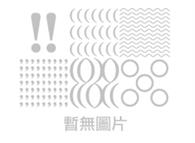
7
0
0
0
0
Newton's sensorium : anatomy of a concept
- 作者: Kassler, Jamie C., author.
- 其他作者:
- 其他題名:
- Archimedes, new studies in the history and philosophy of science and technology ;
- 出版: Cham : Springer International Publishing :Imprint: Springer
- 叢書名: Archimedes, new studies in the history and philosophy of science and technology,volume 53
- 主題: Newton, Isaac, 1642-1727. , Physics--Philosophy. , Senses and sensation. , Metaphysics. , Philosophy. , Philosophy of Science. , Human Physiology. , Philosophy of Mind. , Epistemology.
- ISBN: 9783319720531 (electronic bk.) 、 9783319720524 (paper)
-
FIND@SFXID:
 CGU
CGU
- 資料類型: 電子書
- 內容註: Introduction -- Part I. The sensorium in Newton's texts: 1. Preliminary remarks. 1.1. The data -- Part II. The human sensorium in context: 2.1. Newton on the sensory-motor system. 2.2. Summary and comment -- Part III. The human sensorium in wider context. 3.1. William Briggs on the visual sensory system. 3.2. Thomas Willis on the nervous system. 3.3. The spectator in the dark room -- Part IV. Generalising to the divine sensorium: 4.1. Taking stock. 4.2. The divine spectator and the cosmic spectacle. 4.3. Afterword: Is infinite space a container? -- Conclusion.
- 摘要註: In the writings that Newton intended for a public audience, he used the term 'sensorium' in relation to both humans and God. But in the writings of commentators, it has been little recognised that these two usages form a complete concept, so that even today there is no consensus about the meaning of his term. This book, which is written as a process of discovery, not a thesis to be demonstrated, represents the first systematic investigation of the two parts of Newton's sensorium concept, which is a construct, that is, a concept specially devised for a theory. Therefore, the author sought to discover the meaning of his complete sensorium concept, as well as the model that underlies it, beginning with the human sensorium. This part of his concept is situated, first, in the context of Newton's published writings and, then, in the context of the writings of his contemporaries, William Briggs and Thomas Willis, two English physicians who were at the forefront of their respective specialties, ophthalmology and neurology. Only then is it possible to generalise to the divine sensorium, because Newton's method of reasoning from experience requires that the second part of his concept is last in the order of knowledge. And the reason for this sequence is that Newton's method, which he sometimes referred to as the 'analogy of nature', proceeds from that which has been observed to be universally true to that which is beyond the limits of observation. Consequently, generalisation passes insensibly into reasoning by analogy. During the discovery process, a number of widespread assumptions are called into question, including that Newton can be classed as a theological voluntarist for whom will is superior to intellect, or that, for Newton, not only the material world but also God occupies the whole extent of infinite space. The insights afforded through this book will appeal to historians of natural philosophy and philosophy of mind.
-
讀者標籤:
- 系統號: 005430470 | 機讀編目格式
館藏資訊
